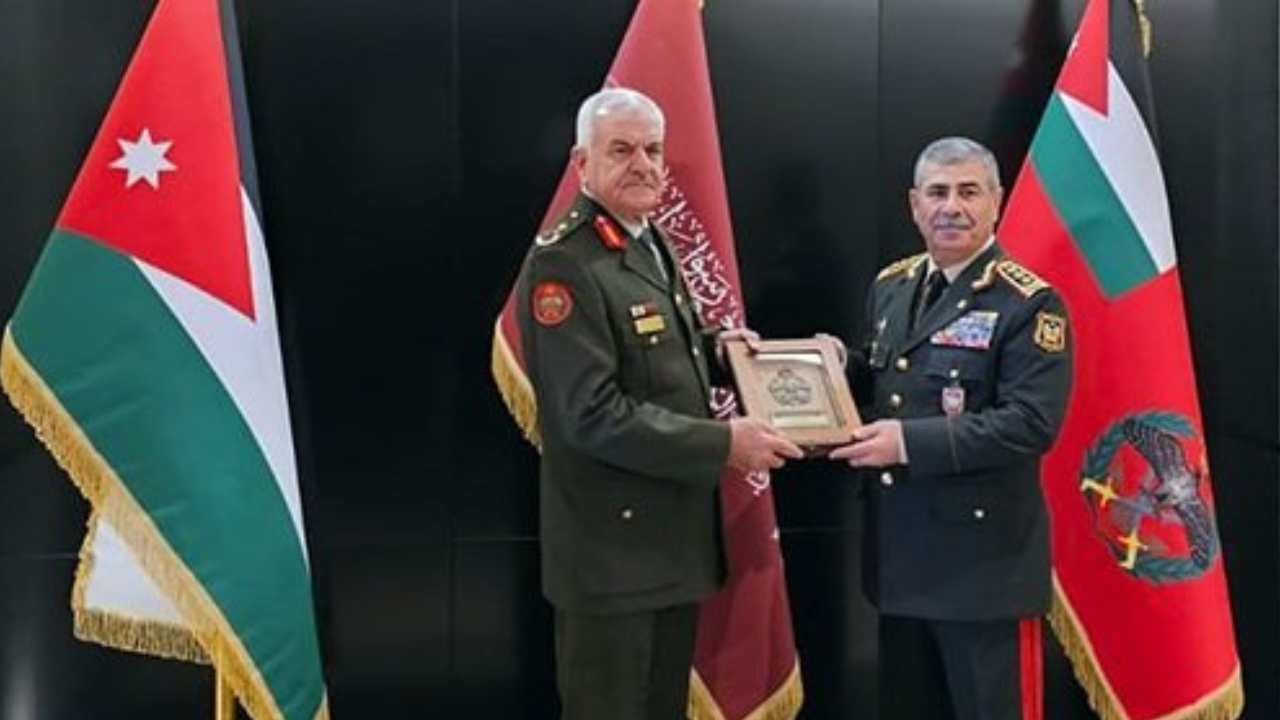
Publication
Tel Aviv–author of the Azerbaijani-Jordanian rapprochement

ARVAK Center comment, 18.04.2024
On 14.04.2024, just hours after the Iranian “retaliatory attack” on Israelis, a delegation of the Azerbaijani Defense Ministry headed by Minister Z. Hasanov visited Jordan. Obviously, it was a planned visit, but Baku, considering the heated situation in the region and Amman’s actual involvement in the conflict, not only did not cancel it, but also tried to cover the event as widely as possible.
Hasanov visited several military facilities in Jordan, negotiated with the high command of the Army and, finally, met with King Abdullah, to whom he conveyed I. Aliyev’s personal invitation to visit Baku within the framework of COP29.
Wide coverage of the visit indicates that Baku was not embarrassed by the fact that the Kingdom of Jordan participated in the repulsion of an air attack by Iranian forces against the “Zionist regime”, which shocked a significant part of the countries of Islamic solidarity. On the contrary, Azerbaijan, without waiting for the results of discussions in the Islamic community about the stand of the Kingdom, has considered it necessary to show that it is completely loyal to Amman’s policy of fully supporting for Israel. Moreover, official Baku has already clearly outlined its vision of the Middle East problem, almost deliberately denouncing Tehran’s expected actions in response to the attack on the Iranian consulate in Damascus.
11.04.2024, Ilham Aliyev’s Special Representative Elchin Amirbekov, in an interview with the Italian Interiis, stated: “As is known, we are perhaps the only country with an Islamic majority that has the best relations with Israel in the world. This is more than just friendship. It is enough to see the ordinary existence of the Jewish community in our country. We believe that the conflict has not a religious, but a territorial basis”.
Considering also the parallel anti-Iranian and anti-Palestinian campaign in the Azerbaijani media, Amirbekov’s statement should be interpreted as a confirmation of Azerbaijan’s long-standing “divisive” position in the OIC. It should be recalled that even considering the contradictions in the Islamic solidarity community, no Muslim country has ever questioned the linkage of the Arab-Palestinian liberation movement with the fate of the pan-Islamic shrines in Israel or downgraded the sacred significance of this struggle to a trivial territorial dispute.
Returning to the subject of the observed Azerbaijani-Jordanian military-political rapprochement, it should be noted that the authorship of this project, apparently, belongs to Tel Aviv. It is there that a geopolitical combination is being developed to create a certain alliance of Islamic countries aimed, on the one hand, at undermining solidarity in the Muslim world and undermining Iran-centric sentiments in the Middle East, and on the other, at creating a complementary applied system of comprehensive military deterrence against Tehran. In this sense, Jordan has already played the role of a buffer zone for Tel Aviv, neutralizing a significant part of the Iranian strike against Israel. Meanwhile, Azerbaijan is considered by Tel Aviv as an anti-Iranian offensive bridgehead, and Baku, judging by objective data, is still not opposed to this function.
Therefore, as expected, the exchange of attacks by Tel Aviv and Tehran has aggravated the rupture of political contradictions in the Islamic Middle East and may have brought the point of its transformation into an internal war one step closer.
